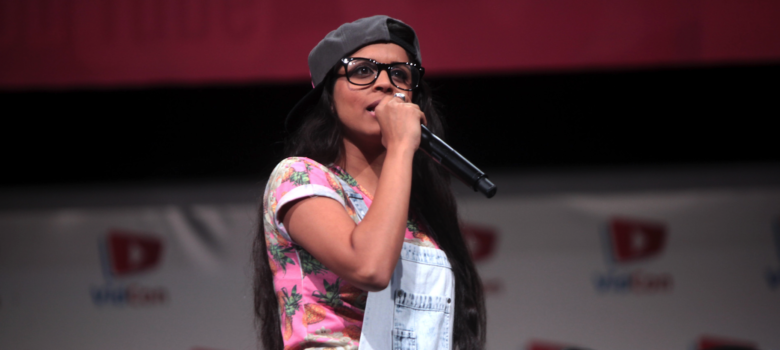The government’s defence of Bill C-10, the Broadcasting Act reform bill, took another hit over the weekend with what might have been the worst interview yet by Canadian Heritage Minister Steven Guilbeault (and that includes the CBC interview ten days ago that people are still talking about). In the span of eight minutes, Guilbeault managed to cite the wrong section in the bill, indicate that social media users with a large number of followers would be regulated, and justify the regulation by assuring that it would come from the CRTC, rather than the government directly.
What was left at the end of the interview was further confirmation that the government is regulating user generated content. The chronology is clear: it included an exemption for user generated content in Bill C-10, removed that exemption so that all user generated content would be treated as a program under the law, and then proposed to add an amendment to govern the scope of CRTC regulation over those programs. The CRTC regulation, which focuses on “discoverability”, means that the regulator will determine what appears in social media feeds for services such as TikTok, Instagram, and Youtube. No other country in the world has adopted this kind of regulation. Moreover, after the Guilbeault interview, it is clear that the Minister believes his bill will extend to regulating social media users that have large audiences.
The interview began with Guilbeault being asked whether the bill would allow the CRTC to regulate user generated content. His response was both wrong and misleading:
Anyone who has taken the time to actually look at the bill will see that there is an article, Article 2.3 which clearly excludes individuals from this Act. So the CRTC cannot, will not, regulate user generated content.
Section 2.3 does not say that at all. Guilbeault was presumably thinking about Section 2.1. Yet Section 2.1, which excludes individuals, does not exclude their content (as Evan Solomon immediately noted). That was Section 4.1, which the government removed. By removing Section 4.1, the regulation of user generated content is clearly on the table. Indeed, the government’s own amendments raised just last week acknowledge that the CRTC has the power to regulate user generated content and even creates a new provision on discoverability that arises from that power.
That was bad, but then it got much worse. Solomon proceeded to ask whether Bill C-10 would catch Youtube or other social media users with a large number of followers:
If the CRTC is regulating discoverability of Canadian content on social media, that is regulating social media. You are now calling user generated content programming. This is the fundamental debate. I feel like we’re driving past each other here. If the CRTC can put that, you’re regulating it.
Guilbeault responded by opening the door to regulating Youtube users:
Individuals are exempt from this law, or will be once it is adopted. What we want to do, this law should apply to people who are broadcasters or who act like broadcasters. So if you have a Youtube channel with millions of viewers and you’re deriving revenues from that, at some point the CRTC will be asked to establish a threshold.
Incredibly, it got even worse. Solomon then noted:
You’ve just said that user generated content at some point will be determined that it can be regulated by the CRTC. You used to have an exemption for all that user generated content. Now you’re saying at some point the government is going to determine it. This is why there is pushback sir, because you’ve opened the door to regulation.
Guilbeault’s response: it’s not the government, it’s the CRTC. I suspect few will find comfort in assurances that an unelected government regulator will determine what is regulated on social media. With each passing day it becomes increasingly clear that Bill C-10 should be withdrawn and the government should start over.








I certainly do not find any comfort. The CRTC is a tool of the government, after all. Minister Guilbeault’s distinction is non-existant.
I’m amazed that Guilbeault hasn’t hurt himself with all of his flip-flopping and tying himself in knots.
The absurdity of this Bill can be highlighted by looking at Stephen Colbert. He has a late-night TV show that is carried on Global and a YouTube channel (which shows clips from his TV show) with about 8.5 M subscribers. According to Guilbeault the CRTC could demand that Colbert’s YouTube channel carry Canadian content while, at the same time, Global could broadcast his TV show without any Canadian content.
Nope, the blog is outdated again. Today he says they won’t be regulated and never will be-
https://www.ctvnews.ca/politics/minister-backtracks-comments-on-bill-c-10-says-social-media-users-will-never-be-regulated-1.5421123
You can’t keep up. By the time this story is posted, he’ll have contradicted himself again, happy again to regulate our speech. Is it strategic? Confuse us daily on their intent, while ramming legislation through to regulate us? Can that work in Canada? Or is the problem that Mr. Geist thinks before communicating, and thinking takes too much time to keep up with someone saying anything convenient in the moment.
Similarly, we see Mr. Guilbeaut and corporate advocates commenting on this blog drumming up populist anger against “big tech” to justify C-10. Apple and Google and so on make a convenient boogieman, but they make billions on copyright.
How do we engage with someone saying different things from either side of his mouth?
Pingback: Links 11/5/2021: Maui 1.2.2 and Tor Releases | Techrights